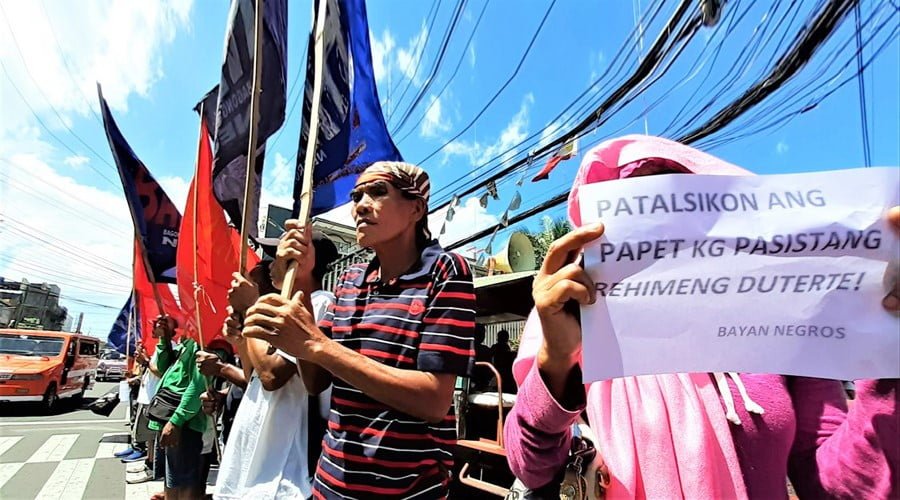WENNIE G. SANCHO
As a labor advocate, there are questions that had inflamed my revolutionary mind and my soul seethes with anger and bitterness against those who perpetuate labor oppression and exploitation. Why are those who care about the poor being scorned? And those who fight for the rights of the people mocked?
We may ask by what right then do they impose the pain of exploitation upon the workers? By what right do they enslave the workers? This form of slavery is brought forth by the ignorance of the danger imposed upon them in the name of profit.
If we are silent, who then will give voice to the poor workers’ deepest concerns, sorrows and sufferings? We choose to stand alongside with the dispossessed, the least of the least, the disdained and the persecuted. We are with them in their struggle for liberation from unjust poverty. This is a glorious and noble calling. We must put an end to their inhuman degradation and misery, for them to attain the workers emancipation.

Unfortunately, most of us had been trained not to look, like old horses with blinders affixed to our bridles. We have been trained not to think, not to speak, not to protest. We have been trained since we were children to believe that silence is golden. Ah! Justice, indeed, is difficult to find when our mouths are gagged and our eyes are blind.
Truly, we have come a long way from freedom to slavery, from sanity to madness. And for what? For the profit of the capitalist.
The labor sector is now at the crossroad of our existence. We are at a crucial point where a decision has to be made. Remember, we were not born into the ghetto of servitude, we were born in a palace of freedom. Like the slave who breaks his chains, we can achieve individuality only through the rebellious forces of freedom. For the shackles are slipped over us in our silence, while we, the compliant, make no sound whatsoever. Silence gags us in the dark as if we are chained like a slave to the whipping post.
But now, the worker is no longer the uncomplaining silent sufferer, bearing as he could his self-appointed punishment. He would no longer succumb to perpetual subjugation, until the day he gasps his last exhausted breath and rolls into his grave.
Now the worker is determined to be free, he must be free or die in the attempt to regain his God-given rights and freedom.
The slavery which I speak of lurks in the memories of injustice because of our apathy and cowardice. By what right, other than by force of power do some men dominate others?
It is strange that we should hate those whom we have injured the most.
But now, we have learned to question. We question, because questioning gives us new eyes. The great question mark has become a powerful weapon for freedom. How we rejoice to hear the voices of the many workers, always questioning the way of things.
Are you free or a slave? Are you a coward or a brave? We have to question in order to be free, because we are only free if we can question or criticize. – NWI



